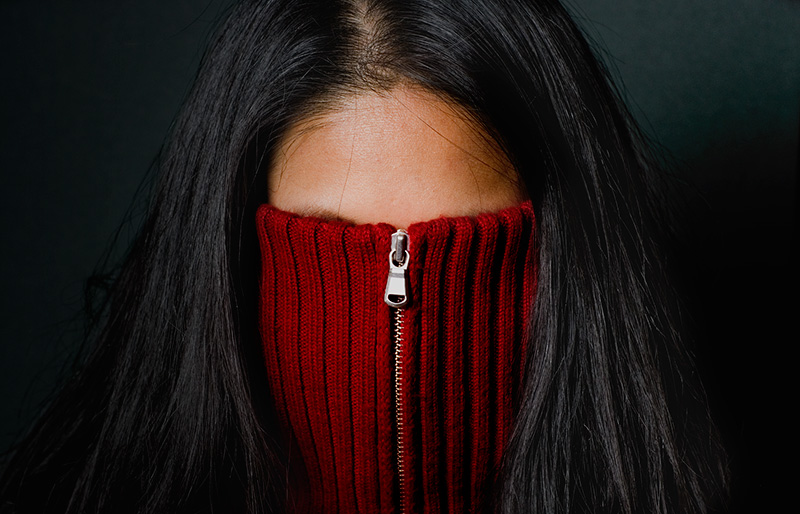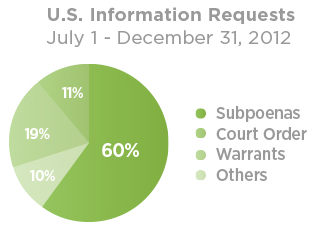 Governments want more of your data, but copyright holders are getting slightly less active in requesting tweet takedowns.
Governments want more of your data, but copyright holders are getting slightly less active in requesting tweet takedowns.
The social/news/media network published its second Twitter Transparency Report today in conjunction with #DataPrivacyDay. Twitter’s goal is to be open about revealing how many government requests it gets for user information and DMCA copyright takedowns. Its first Transparency Report was published seven months ago, in July.
“These growing inquiries can have a serious chilling effect on free expression – and real privacy implications,” Twitter’s legal policy manager, Jeremy Kessel, wrote in the post. The data shows that governments and copyright holders are plenty interested in Twitter. Not so much in tweeting, however.
Since January 1, 2012, Twitter has received a total of 1,858 information requests, 48 removal requests, and 6,646 copyright violation notices. Government requests are up from 859 in the first half of the year to 1,009 in the second half, while copyright violation notices are down slightly, with 3,378 notices in the first half of 2012, and 3,268 in the last six months.
The United States continues to be the 800-pound gorilla of data-hungry countries. It was responsible for 1,494 of those 1,858 information requests in 2012 — a full 81 percent of all the requests received by Twitter. Sixty percent of those come via subpoenas, 11 percent via court order, another 19 percent via warrants, and 10 percent through other channels. The most common type, subpoenas, are generally used to obtain a Twitter user’s email address and IP (internet protocol) addresses. They do not require a judge’s sign-off.
How do you know if your data has been requested?
Twitter says its policy is to notify you if at all possible, but it only notified 24 percent of people whose data was requested. That’s simply due to the fact that, in some cases, the network was prohibited by law from notifying users, and in other cases, Twitter did not comply with the request due to insufficient data or a withdrawn request.
Copyright notices are the big kahuna of takedown attempts, with 3,378 notices in the first half of 2012, and 3,268 in the second half.
Only 53 percent of those 3,268 requests were successful in getting tweets taken down, but they still affected 7,205 user accounts and caused 5,557 tweets to be “withheld,” Twitter’s new process for removing but not deleting offending tweets.
Recording industry watchdog RIAA accounted for only 120 of the takedown notices, a 14 percent drop. The lion’s share were from Websheriff, which is an online service that finds and reports the unauthorized use of copyrighted materials — but many of these were probably also music-related, as the service calls itself “the Music Industry’s top web enforcer.”
Why are so many of the government data requests coming from the U.S.?
According to Twitter, that is simply because it is based in San Francisco. That’s a little surprising, given that far less than half of Twitter users are U.S.-based, and according to some reports, China and India are more active on the network (although that is disputed by others).
I wonder if data privacy advocates would agree with Twitter’s reason.
photo credit: Frederic Poirot via photopin cc
VentureBeat's mission is to be a digital town square for technical decision-makers to gain knowledge about transformative enterprise technology and transact. Learn More


